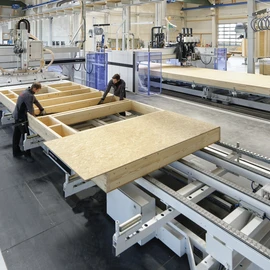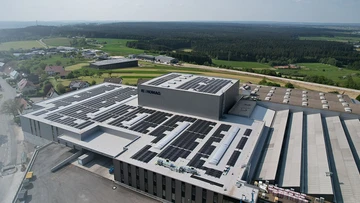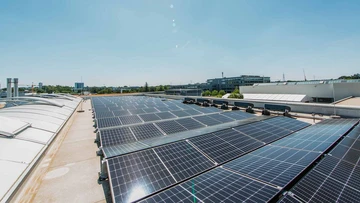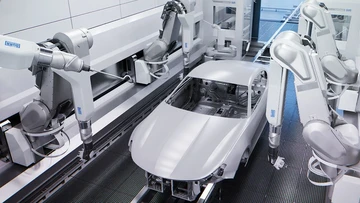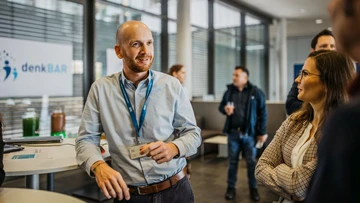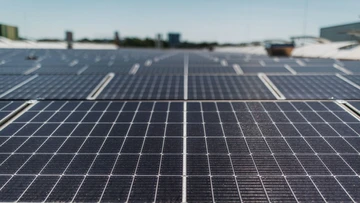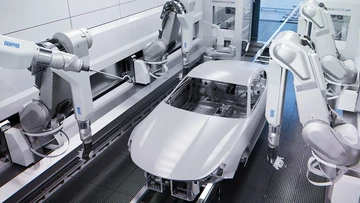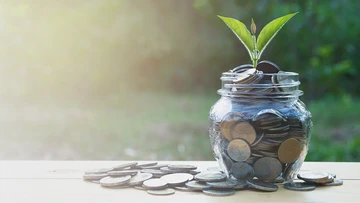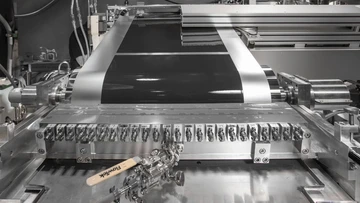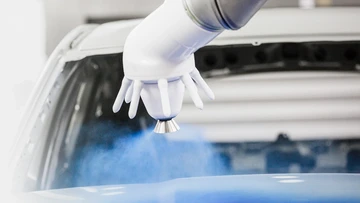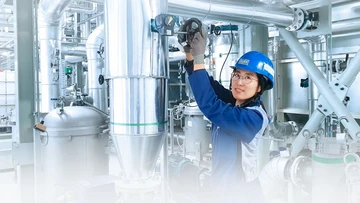“We actively assume our responsibility for climate protection. With our climate strategy and the corresponding reduction targets, we are among the pioneers in mechanical and plant engineering. Ecological sustainability has a long tradition at Dürr. For example, we have been active in environmental technology since the 1960s. At customers’ sites worldwide, our technologies make an important contribution to reducing emissions in production. We will substantially reduce the ecological footprint of our own locations by investing in climate-friendly technologies and buildings and by switching to green electricity,” says Dr. Jochen Weyrauch, future CEO of Dürr AG and responsible for the Group’s sustainability strategy.
Scientific monitoring: Science Based Targets initiative
Currently, the company is having its climate strategy and its targets scientifically validated by the Science Based Targets initiative (SBTi). The globally recognized organization examines whether the reductions targeted by the Dürr Group are in line with achieving the 1.5 degree target. The opinion of the SBTi is expected for the first half of 2022.
Investments in energy efficiency
In 2019, the CO2 emissions directly attributable to the Dürr Group amounted to approximately 57,000 tons. These are the so-called Scope 1 and 2 emissions, which mainly result from site operations and the purchase of energy.
The climate strategy contains measures to reduce these emissions by 70% by 2030. By 2023, all locations worldwide will be converted to green electricity without exception. Moreover, the Group is investing heavily in photovoltaics. The German locations in Bietigheim-Bissingen, Schopfloch and Holzbronn will be the first, investing €1.4 million in this alone. In a second step, further plants are to follow in Germany, Poland, China and the USA. In addition, ORC (Organic Rankine Cycle) systems from our own product range will be installed. This allows electricity to be generated sustainably from waste heat. With the help of photovoltaics and ORC, the appropriately equipped locations are expected to self-generate at least 70% of the required electricity in a climate-neutral manner.
Further emissions reductions are to be achieved through investments in buildings. For example, the new buildings at HOMAG in Schopfloch and Sroda (Poland) announced in the spring will be equipped with energy-efficient building technology. Lighting and heating will also be converted to low-consumption technology. Ultimately, the Dürr Group aims to improve the energy efficiency of its locations by 1% to 2% each year. In addition, the entire fleet of company vehicles in Germany will be gradually converted to alternative power trains by 2030 at the latest.
Energy-efficient products and emissions reduction in the supply chain
The new climate strategy also aims to reduce so-called Scope 3 emissions. They mainly include CO2 emissions in the supply chain and emissions caused by customer use of the products sold. Naturally, the amount of these emissions is much larger than our own emissions and can only be influenced indirectly. Nevertheless, they are to be reduced by at least 15% by 2030.
The innovation work of the Group focuses on the energy efficiency of its products. In the past 15 years, Dürr has already been able to reduce the energy consumption of large paint shops for the automotive industry by two thirds through appropriate innovations. This course will be continued and intensified. “We are an important partner for our customers in decarbonization, since our machines and systems have a major impact on the climate footprint of production,” says Dr Jochen Weyrauch. “When making investment decisions, customers are increasingly conscious about the degree to which new production equipment will contribute to achieving their climate goals. That is why we are focusing more strongly on the development of energy-saving technologies and the use of renewable energies within the scope of our climate strategy.”
The Dürr Group will increasingly work towards sustainability with its suppliers. At present, a program is being developed that offers financial incentives for suppliers with climate-friendly processes. In logistics, more goods transports are to be shifted from road to rail and transports by air freight are to be avoided as far as possible. In addition, the carbon footprint of logistics partners will play a role when awarding contracts in the future.
Employees will also be involved in the new climate strategy. In the future, suggestions from the workforce that contribute to the ecological transformation of the company will be promoted and rewarded through a new ideas management program. Moreover, the Group is working on offers for commuters in order to reduce emissions on the way to work.




